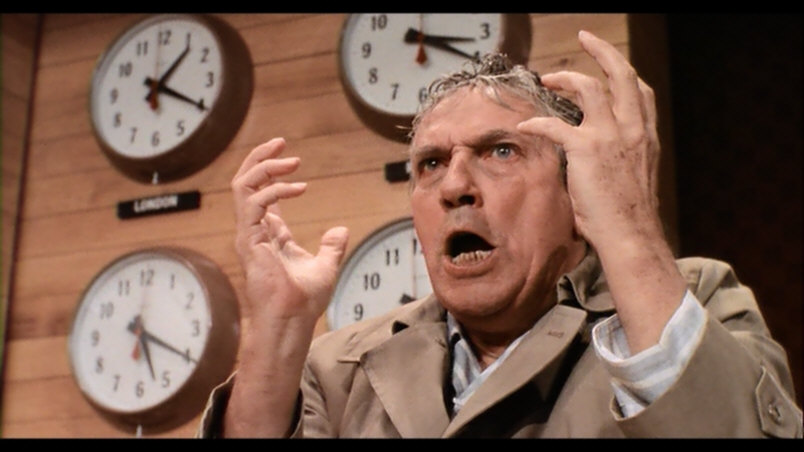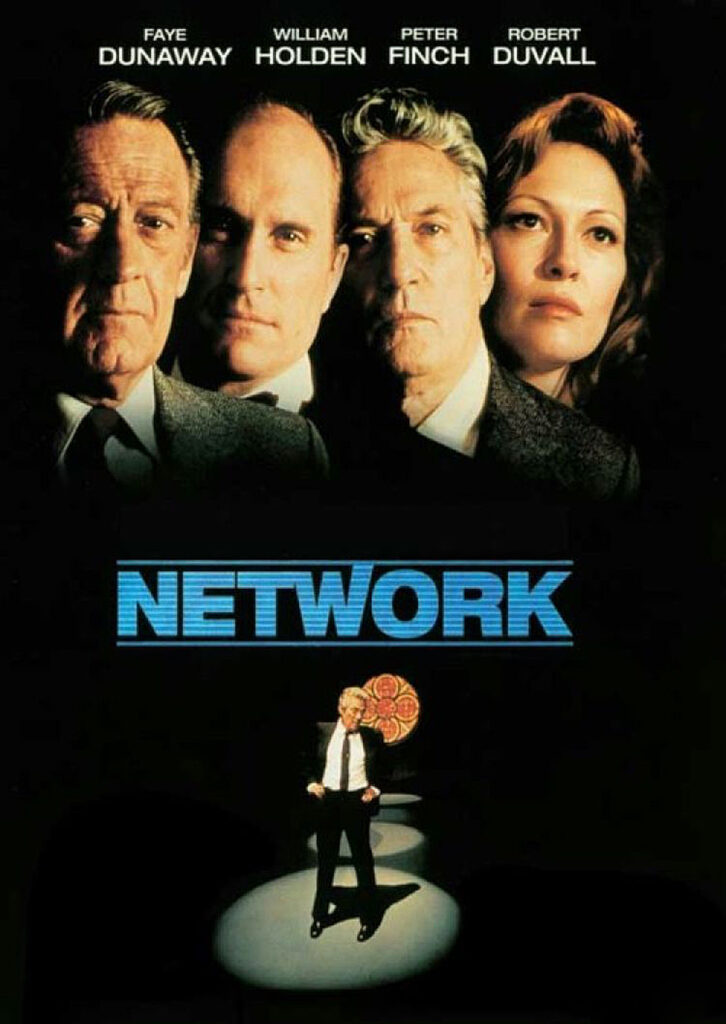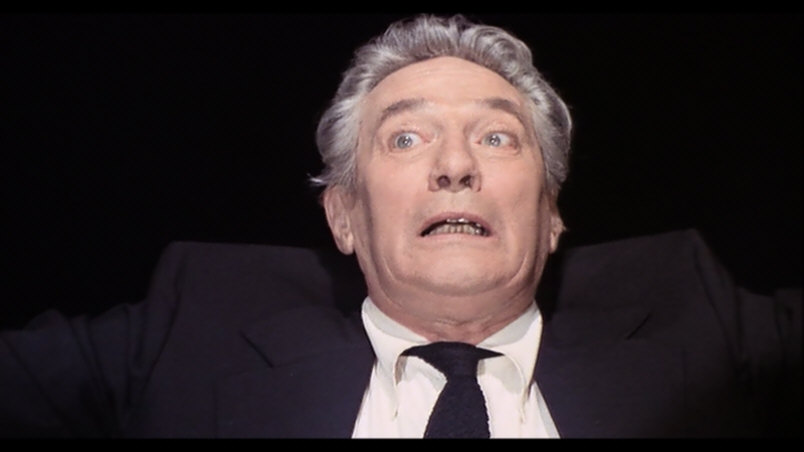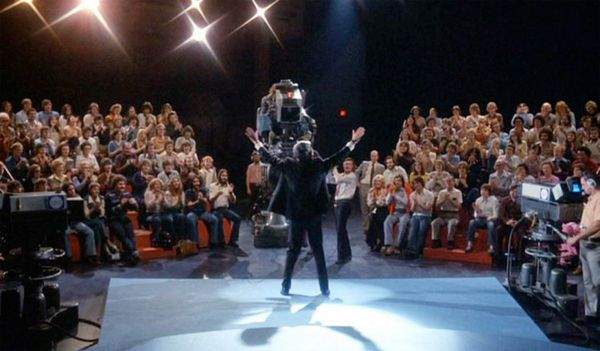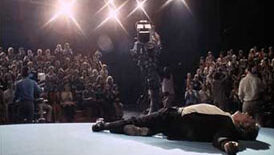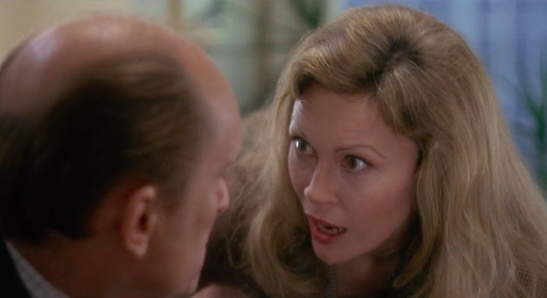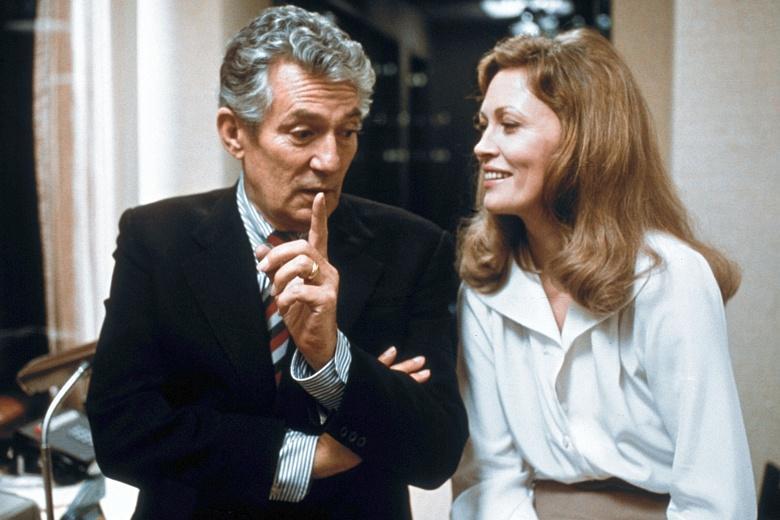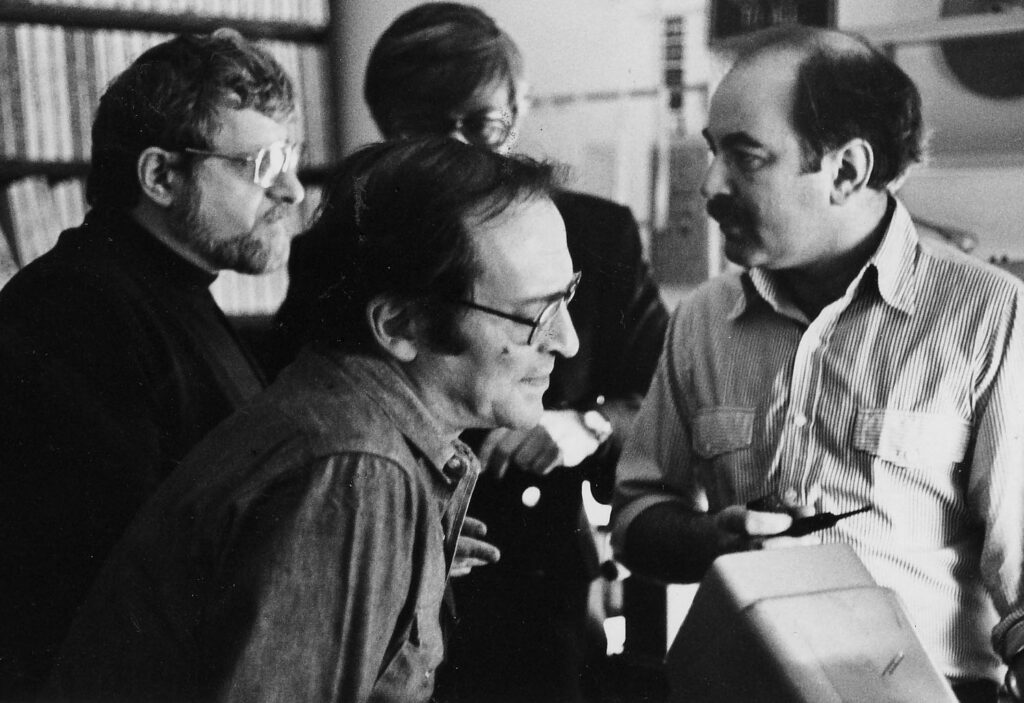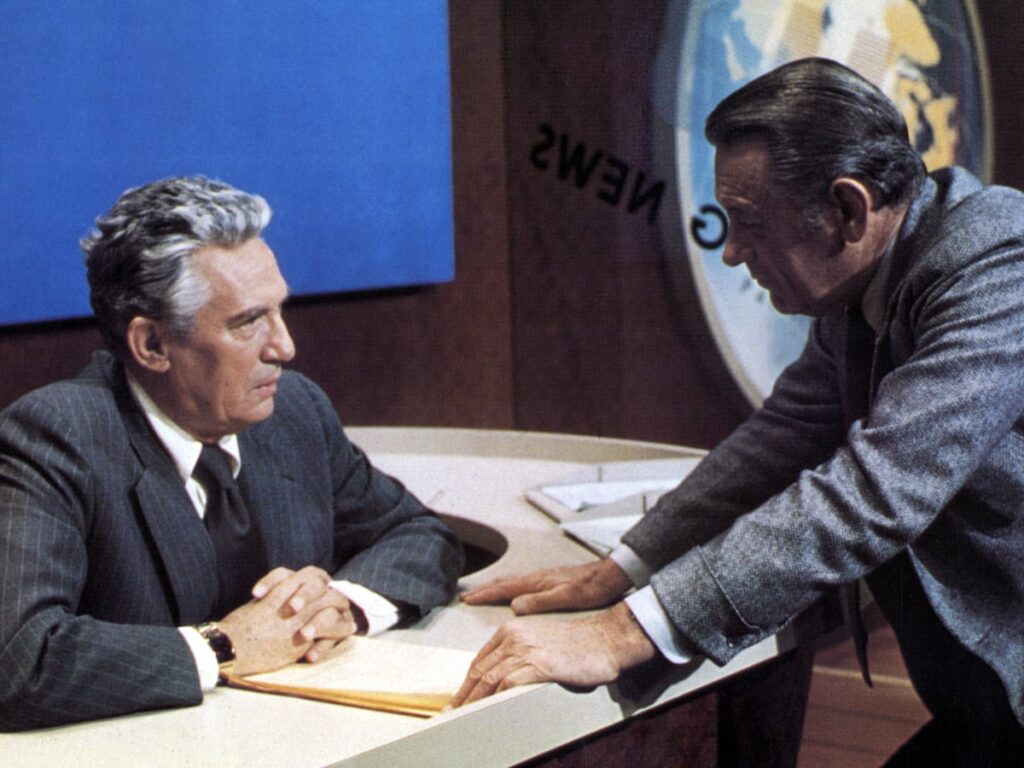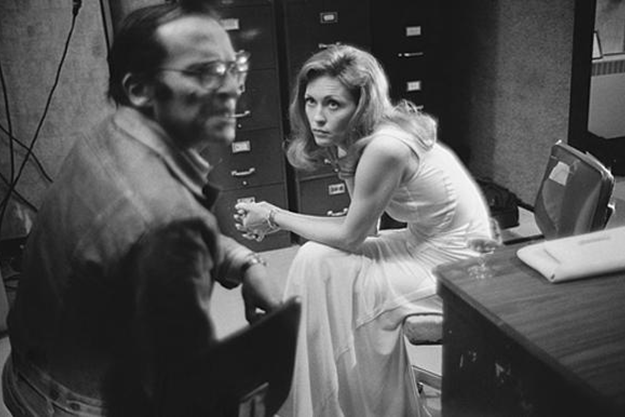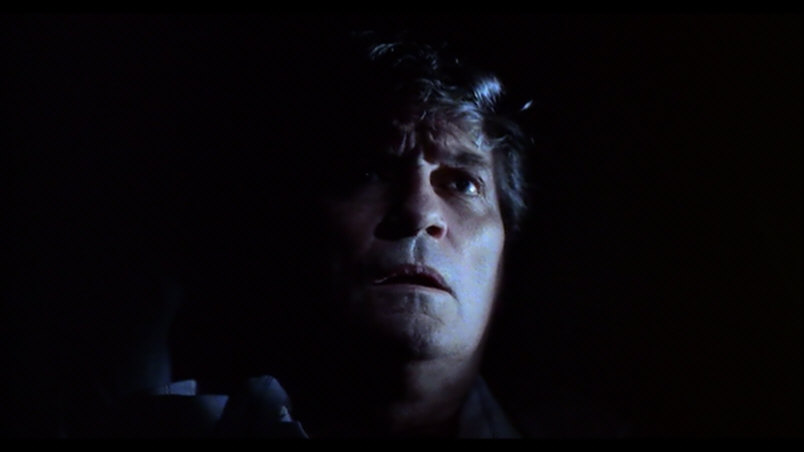
Network (1976) was the lamentation and exhortation of writer Paddy Chayefsky. A lamentation of the corruption of the medium by moneyed interests, and the exhortation to do something about it lest television descend into the depravity depicted in the film. He was saying “this is how far this has gotten, and this is where it’s going to go unless it is stopped now.
The film can flow over the audience and make them think it’s nothing more than a melodrama but those who care to think and pick it apart can see just how much of what Chayefsky was warning us about has come to fruition.
Finally, Network is a film about the corrupting influence of television. Viewed properly, the film should be a source of deep contemplation.
Paddy Chayefsky’s Warning
Infotainment, reality t.v., tabloid journalism, and most of all the corruption of the news itself to serve corporate and political interests. Chayefsky told us this is where we were heading and when you look under the surface it’s all there. Forty-five years ago, Chayefsky saw it all coming. Despite his warning, no one did a thing to stop it.
First came A Current Affair, Hard Copy and Inside Edition (starring Bill O’Reily) which tried to pass themselves off as the new 60 Minutes but served mostly as pseudo news with sensationalist reports (such as “Hitler’s Secretary”) combined with passing moralized judgement at the end by the hosts. Then came the daytime talk shows with Jenny Jones and Jerry Springer dishing out sensationalist, prurient “topics” with moralizing commentary at the end. Reality t.v., whose entertainment value comes only from interpersonal conflict. Finally, the end of the Fairness Doctrine which ultimately led to the propaganda machine known as FOX News. When you look at it 45 years later, and begin to see what lies beneath the surface and just how accurate it became, it’s almost horrifying.
Opening Scene sets up the whole film
I’ve always felt that there was supposed to be something very important in the first scene of Network. I finally figured it out. Chayefsky is doing several things with William Holden’s character, Max Schumacher. At the end of the scene he gives this brief monologue:
Execution of the week. Terrorist of the week. I love it. Suicides, assassinations, mad bombers, Mafia hitmen, automobile smashups. The Death Hour. Great Sunday night show for the whole family. I’d wipe Disney right off the air.
William Holden in Network
Max and Howard are drunk in this scene. Max makes what he thinks is an absolutely absurdist dialogue about where television could go. But in this speech Chayefsky sets up the entire premise of the film. It’s exactly where things go and now we’re on our way! Chayefsky sets up something else. These antics are absurd. But they’re on the verge of happening in real life, not just in the movie–and you should be giving serious thought to that. This dialogue also firmly establishes Max as the moral conscious of the film. Throughout, it’s always Max who speaks out and stands for what is right, especially when it comes to Howard Beale. Max stands firmly against what the network is doing to Howard–exploiting his ever deepening psychosis to their own benefit and to Howard’s great detriment.
The World of “Network”
Network depicts a morally ambiguous world where the only things that matter are ratings, ratings shares, numbers, money and winning. People are seen as commodities. As soon as you’re not serving what the corporation wants you’re through. A world where everything is depersonalized. A world that corrupts all who touch it.
Howard Beale (Peter Finch) has a breakdown live on the air. He rants about the breakdown of society and his ratings go up. Rather than seeing his deepening psychosis, the network exploits him. Diana (Faye Dunaway) sees him not as a journalist but as “a latter day prophet. A magnificent messianic figure speaking in vain against the hypocrisies of our times!” Someone to channel America’s anger after ten years of Vietnam, Watergate, Social, Economic and Energy Crises. Diana wants “angry shows” and finds better fodder simply by reading newspaper headlines.
Diana justifies changing the news format by calling it editorialization rather than what it really was: sensationalism. She changes the network news away from journalism towards hyperbole, with segments such as Sybil the Soothsayer and Vox Populi.
The show ends with Beale ranting about the shortcomings and injustices of society. He has become the prophet Diana envisioned: highly animated speaking, a church-like setting including a stained glass window, spotlights, and the ever present fainting.
Performances
Peter Finch: Spellbinding Performance
Finch’s performance as Howard Beale “The Mad Prophet of the Airways” (right down to the fainting) has become one of the most iconic portrayals in film history. It also has one of the most iconic lines ever said in a movie: I’m as mad as Hell and I’m not going to take this anymore. He plays Beale’s ever expanding psychosis convincingly and without flaw. Never once seeming over the top to the point of becoming distracting and taking the audience out of the moment.
Faye Dunaway
Faye Dunaway had a similar task. She played Diana’s drive, passion, exuberance and ultimate loneliness while never seeming cartoonish or as a stereotypical driven career woman–though that’s what she is. Perhaps the best piece of direction Lumet gave her was “if you ever try to make her sympathetic I’m going to cut it out.” Through this, Diana becomes a very important icon for women–you can be beautiful, smart and strong without becoming a derogatory word often used to describe women.
Diana describes herself as having a male sensibility: “I consummate quickly and as soon as it’s over I’m out the door. The one thing I’m good at is my work. I’m very good at my work.” Diana’s life is her work, through which she derives all of her pleasure. In one memorable scene while making love with William Holden’s character Max, her pleasure is coming not from the act but from talking about the successes she’s had with the new Howard Beale show.
William Holden and Ned Beatty
William Holden is the moral conscious of the film. Always coming in at critical moments when moral or ethical dilemmas are faced. Always the voice of reason and sanity.
Finally, Ned Beatty as the Svengali corporate villain. Chayefsky and Lumet brilliantly use satire and irony to underscore his malice and he is literally made up to look like Theodore Roosevelt. The President who crusaded against “the malefactors of wealth.” All four were nominated for Academy Awards, with Finch and Dunaway winning.



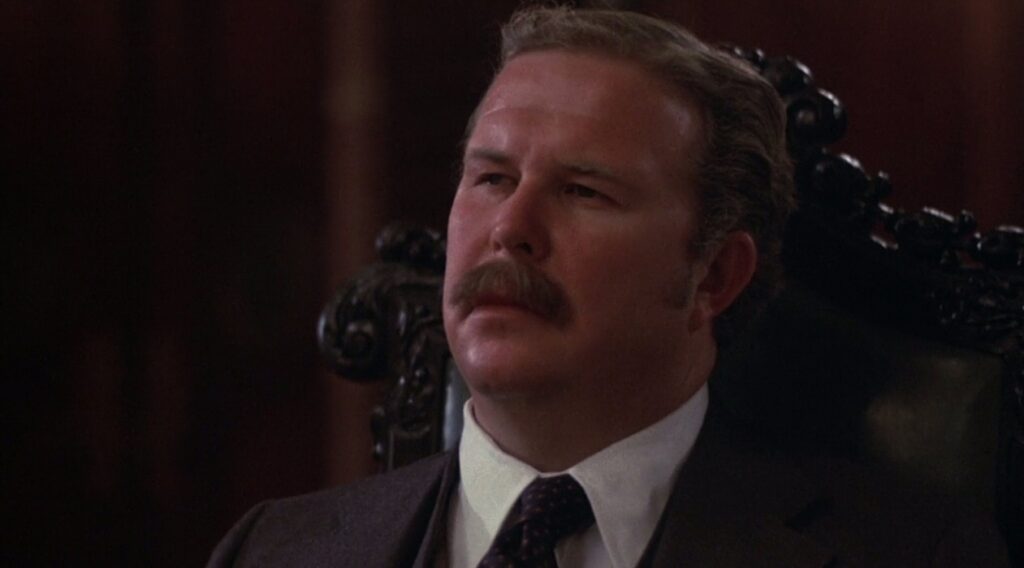
Sidney Lumet’s Crowning Achievement
Directed by Sidney Lumet, Network was the crowning achievement of his major hot period in the 70’s, directing Serpico, Murder on the Orient Express, and Dog Day Afternoon in the years prior to this. The film is a magical combination of Chayefsky’s script disguising social and political commentary, Lumet’s skillful direction which played the satire in Chayefsky’s script combined with drama to disguise what was going on just beneath the surface, and the powerhouse performances of Peter Finch, Faye Dunaway, William Holden, Robert DuVall and Ned Beatty.
Earning the Actor’s Trust
Lumet was the perfect choice to direct the film. His best skills as a director would be needed to pull off the very difficult task of creating all the outlandish actions on the screen but keeping them believable. Being able to direct actor’s was one of his strong suits. Known as a “Actor’s Director,” Lumet was brilliant at communicating and collaborating with his actors in order to get their very best; gaining their trust in order to keep what could have been scene after scene of over-the-top histrionics in check. He knew it would break the believability of the film if he didn’t. The audience is never taken out of the moment by anything one of the actors does or says–he kept them “real”
Director’s Choices
Some people have criticized Lumet’s films for being too reliant on lighting and choice of camera lens. I disagree with this assessment, especially here. Lumet brilliantly uses lighting and camera compositions to further convey to overall arc of the story. The lighting at the beginning of the film is very minimalist and realistic. The camera setups are very traditional Hollywood. As the movie progresses the lighting gets more and more artificial. More and more like commercials. The camera setups become more rigid and end up completely static. The framing was like still photos. But all of this was brilliant at underscoring the theme of the film: the corrupting influence of television. Even the lighting and camera become its victims.
The Legacy of “Network”
Network was nominated for ten Academy Awards including Best Picture, Director, Cinematography, Editing and Best Actor for William Holden. It won Best Actor and Actress for Finch and Dunaway (the first time both went to the same movie since It Happened One Night in 1934,) Best Supporting Actress for Beatrice Straight, and to Paddy Chayefsky for the screenplay. It earned $27.3 million at the box office ($110 million today.) Screenwriter Aaron Sorkin has written that “no predictor of the future—not even Orwell—has ever been as right as Chayefsky was when he wrote Network.”
A perfect five star rating. There’s not a single flaw in the film. It’s as engaging and thought provoking as it was in 1976. A must see.
